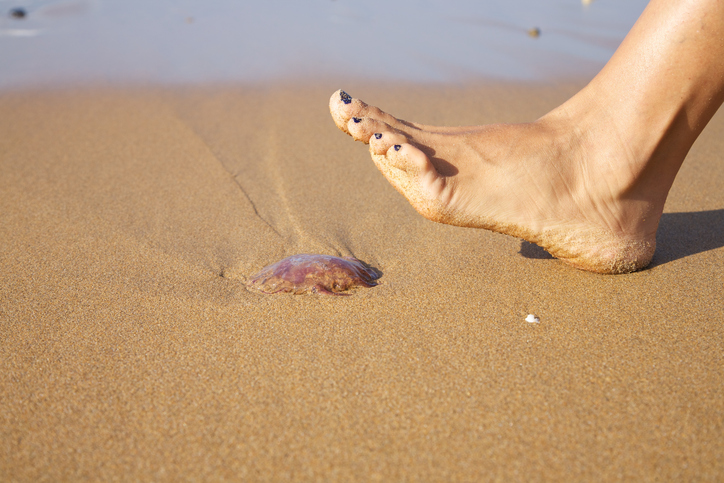There are certain things we’ve been told our lives—and each successive year—about living it up in the summer. Uncle John took some time out of his busy seasonal schedule of grilling hot dogs and catching waves to hit you with some truth.

There’s a surefire way to “relieve” a jellyfish sting
Jellyfish are mysterious, hypnotic creatures, and, if you inadvertently get too close to one when wading in shallow waters on an ocean beach, it will sting you, although probably not on purpose. You just happened to encounter it as it was swimming by, and came into contact with Its tentacles, studded with nematocysts, or tiny, venom-filled barbs that poke human skin and release toxins underneath. That leads to instant pain and a burning sensation. What can be done to relieve that awfulness? According to conventional wisdom, urinating on it should do the trick. There is no scientific basis to this. Quite the opposite, in fact. Urine is loaded with electrolytes and salts, which could intensify the pain. What does work? A rinsing of the stung area with saltwater (which is right there at the beach) or with vinegar. (Tylenol helps, too.)
Mayonnaise turns bad in the sun
Everybody probably has a story from their family history about a Fourth of July cookout or church picnic that ended in gastrointestinal disaster because somebody ate potato salad that had been left outside too long. The actual culprit: the mayonnaise in the dish went bad. While it’s not wise (or appetizing) to eat hot potato salad that’s been baking in the sun all day, it’s probably not that unhealthy. Or at least it’s not anymore. Those stories about people getting sick mostly stem from the days when people made their own mayonnaise and used it in their potluck contributions. Today, commercial mayonnaises are more than just an emulsion of egg yolks, oils, and acids—they’re also loaded with preservatives to prevent picnic mishaps.
It’s important to wait 30 minutes after eating before swimming
This one is burned into the collective consciousness. Swimming is such a rigorous activity on the muscles, that you must wait 30 minutes (or 45, or 60) after eating before you hit the water. If you go swimming too soon after eating, you could get a muscle cramp…and drown. The logic: Your digestive tract needs blood to process food, and if that blood isn’t going to your arms and legs, you can’t swim correctly. It’s not so much a myth so much as it is wildly overstated. Yes, the body does need a bit of extra blood to help with digestion, but not that much, and only for a few minutes—not enough to prevent your limps from doing their thing. Swimming too soon after eating may result it, at worst, a very minor and fleeting muscle cramp.








